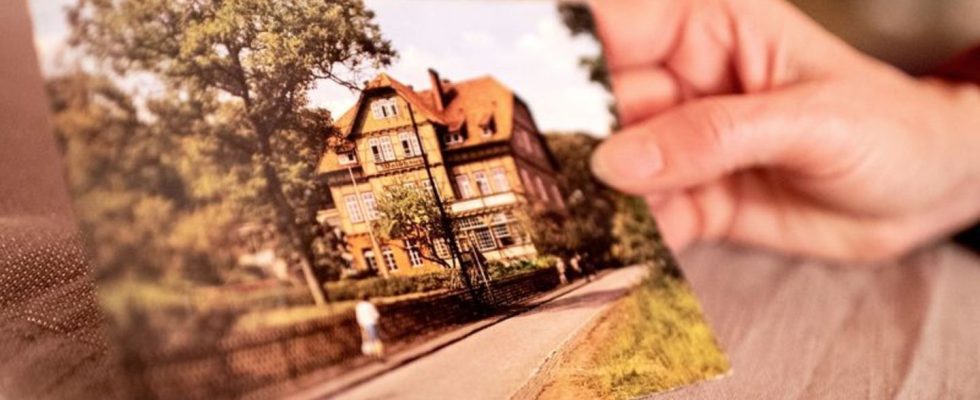Sending children
Former spa children are calling for the harassment to be dealt with
The historical postcard shows the “Waldhaus” children’s hospital in Bad Salzdetfurth. In this home and similar facilities, small children and school children are said to have been mistreated in the post-war period. photo
© Hauke-Christian Dittrich/dpa
For decades, millions of children were sent to treatment without their parents for six weeks. Many experienced beatings and mental cruelty. They exchange ideas at a congress.
Ban on speaking, compulsory sleep, harassment while eating: What happened in German children’s sanatoriums for decades after 1945 has not yet been comprehensively examined. Millions of children between the ages of two and twelve were sent to health resorts to recover without their parents – many returned traumatized. The Lower Saxony health resort of Bad Salzdetfurth was also a destination for sending children.
Those affected and scientists came to the federal congress here “The annual conference of the Sending Children Initiative and the Association for Processing and Researching Sending Children runs until Sunday. Among other things, three affected people will report on their experiences as spa children in the Waldhaus in Bad Salzdetfurth on Friday, as the organizers announced.
Three deaths in just a few months
In the home, in just a few months in 1969, a three-year-old was beaten to death by three six-year-old boys, a seven-year-old suffocated on vomit and a girl died as a result of an infection. According to a study commissioned by Diakonie, negligence can at least be assumed to some extent in all deaths.
Between 1950 and 1980 there was a mass deportation of healthy children, said Anja Röhl, founder of the Deportation Children Initiative. After that, the number of children’s cures fell dramatically. However, brutal behavior still existed in the remaining children’s sanatoriums until the mid-1990s.
Since 2019, more and more children who were previously deported have been breaking their silence. According to Röhl, around 10,000 of them filled out a standardized questionnaire, and there are also thousands of reports on their experiences on internet platforms – many of which talk about harassment and mistreatment.

